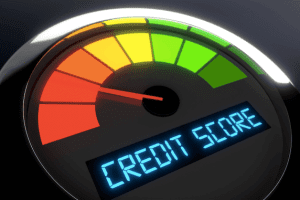Payday loans and credit cards are two major sources of credit that are available to American consumers. They are both extremely popular, with over 175 million Americans holding at least 1 credit card in September 2021.
Whilst in some ways payday loans and credit cards are similar since they both offer a form of short-term loans, there are many significant differences between the two financial products. This guide will delve into further detail on the differences between payday loans and credit cards, and discuss the advantages and disadvantages of both forms of credit.
What Are Payday Loans?
Payday loans involving borrowing money to get access to urgent funds to pay for important expenses. They are designed to help those low on cash who cannot wait until their next payday to sort out a bill.
It is hoped that the borrower will then repay back their loan once they have received their next paycheck, with interest. Payday loans offer short term financial relief and can be a real lifesaver.
What Are Credit Cards?
Credit cards allow consumers to make purchases with credit, meaning that the money does not get removed from their account right away. They can be particularly helpful for large purchases or if you need to buy something and will only have the money to pay for it towards the end of the month before you get your credit card statement.
The type of credit card consumers can get depend largely on their credit score and income. It is important to use credit cards carefully to make sure that you do not spend more on it then you will be able to pay back, as this could lead to debt and financial issues.
Are There Any Similarities Between Payday Loans And Credit Cards?
Both payday loans and credit card are designed for short-term immediate expenses. They both offer customers the opportunity to use money when they need it and for whatever they need it for. Both usually charge interest on the amount of money used, and similarly require repayment over a short period, ranging from a few weeks to a few months.
Both financial products encourage their customers to only use them if they are certain they will be able to afford the repayments. As otherwise the customers can face interest charges which can lead to debt problems.
What Are The Differences Between Payday Loans And Credit Cards?
The Nature Of The Funds
With payday loans, you have the entire amount of money at once. For instance, if you borrow $800, you will usually be transferred the full amount to your checking account. Even if you do not use the money, you will be charged interest for the whole time of having it when you make repayments since the funds have been available since the first day of receiving them.
In contrast, credit cards only charge interest on what you use. So if you have a credit card all month, and you only use the funds when you make a purchase, the potential interest you will have to pay will only start from the moment you use the card, and only for the amount you are charged. If you choose not to use the card, you will not pay interest.
Interest Rates
A significant difference between payday loans and credit cards is the interest involved. An advantage of credit cards is that they tend to offer a period of zero interest that exists if you pay off the amount of your purchases as soon as you get your next statement. This period can be as long as 30 days if your purchase is right after your last statement, so being strategic about the timing of your purchases could help you manage your cash flow and minimize the interest costs you pay on your credit card.
Other US credit cards typically charge around 18-22% interest, whilst the APR for payday loans can be over 400% interest! Payday loans are therefore usually more expensive than credit cards. So if you need to pay off both a credit card and a payday loan, it may be worth prioritizing the payday loan first to save yourself money on the interest costs.
Nevertheless, many US states have payday loan regulations with price caps to prevent predatory lending, for instance with a 36% APR rate in Colorado and and South Dakota. In this case, there may not be a huge difference between borrowing a credit card or payday loan, depending on the terms of both your contracts.
Flexibility
Credit cards offer a large amount of flexibility as although there is a monthly statement and consumers are required to pay a minimum amount each month, they can pay off the balance and the interest at their own pace in any number of payments, allowing them to choose how much and when to pay the amount in full.
Traditionally, payday loan repayments are set on specific dates that are agreed upon in the loan contract. Whilst those who borrow payday loans can delay their repayments by getting in touch with their lender, this is not as flexible since lenders often charge late fees.
Eligibility Requirements
Not everyone can meet the requirements for a credit card since providers require their customers to have a good credit history. Even introductory cards that can only offer a low credit limit will not be available to a customer who has very little credit history or a credit score under 600.
In contrast, it is possible to get no credit check payday loans or a bad credit loan. However, often these types of loans come with harsher repayment terms such as a higher interest rate due to the larger level of risk involved since those with a low credit score may appear less reliable to a lender and not as likely to repay back their loan on time.

Availability
A further difference is the availability of payday loans and credit cards. Whilst credit cards are legal across the whole of the US, payday loans are only legal in 37 states. This includes but is not limited to:
- Alabama
- California
- Colorado
- Indiana
- Iowa
- Kentucky
- Lousiana
- Florida
- Mississippi
- Missouri
- Nevada
- Ohio
- Oregon
- Tennessee
- Texas
Concluding Thoughts
Whilst payday loans and credit cards are both short-term financial products, there are certainly some key differences between them. Credit cards tend to be cheaper than payday loans and so are easier to pay off, but payday loans are typically more inclusive of customers with a wide range of credit histories. Although credit cards offer a more flexible source of credit, it is not always possible to be approved for them and so some customers may wish to consider applying for a payday loan if they are confident that they can comfortably meet the repayments.
Was this article helpful?
Justine is a full-time writer with lots of expertise and a wealth of experience in the financial world. In particular, she specializes in household income and consumer finance across the United States. Follow her articles for useful advice and top tips, guides on how to save money and lots more.

